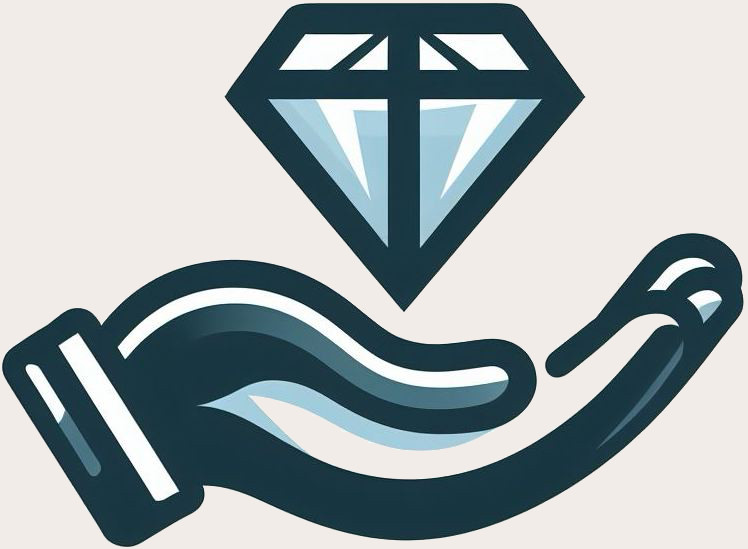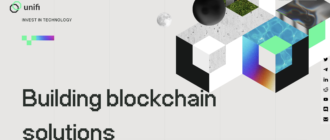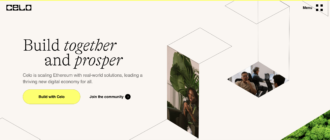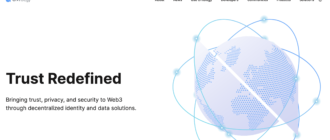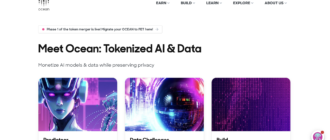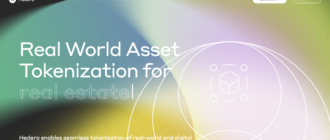This article delves into the Aragon project, a pioneering platform in the realm of decentralized autonomous organizations (DAOs). We will explore its foundational elements, technological structure, tokenomics, ecosystem, and future growth prospects. By providing a comprehensive overview, we aim to illustrate how Aragon and its native token, ANT, are reshaping the landscape of organizational governance and management through blockchain technology.
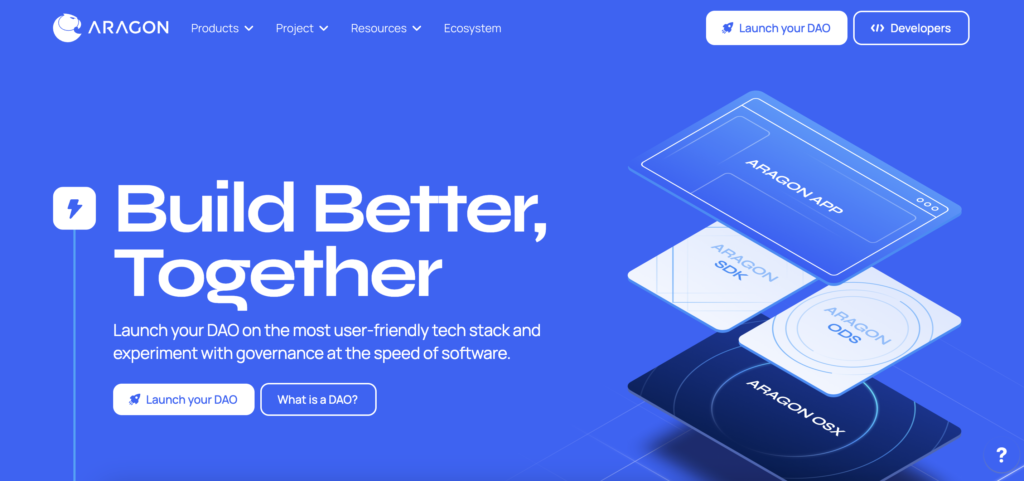
What is Aragon?
Aragon is a decentralized platform designed to create and manage decentralized autonomous organizations (DAOs) on the Ethereum blockchain. It provides a suite of modular tools that enable users to establish and operate DAOs with full transparency and decentralization. The platform’s core offerings include smart contract templates, governance frameworks, and financial management systems that simplify the creation and maintenance of DAOs. Aragon’s primary objective is to democratize organizational governance, allowing for seamless and secure management of assets, voting mechanisms, and member participation, all while minimizing the need for traditional centralized intermediaries.
Project History
Aragon was established in 2016 with the goal of simplifying the creation and management of DAOs. The project quickly gained attention for its innovative approach to decentralized governance and held a successful Initial Coin Offering (ICO) in May 2017, raising $24 million within just a few minutes. Following the ICO, Aragon released multiple versions of its platform, including significant updates in 2018 that allowed the creation of DAOs on Ethereum’s mainnet.
Key milestones in Aragon’s development include the formation of Aragon One, a dedicated team responsible for developing the core software and tools, and the introduction of the Aragon Court, a decentralized dispute resolution system designed to handle conflicts within DAOs. Throughout its evolution, Aragon has maintained a strong focus on enhancing its governance models and expanding its ecosystem, integrating with various blockchain projects and continuously improving its suite of tools to meet the growing demands of decentralized organizations.
How Aragon Works
Aragon operates on the Ethereum blockchain and utilizes a suite of modular tools designed to facilitate the creation and management of decentralized autonomous organizations (DAOs). At the core of Aragon’s functionality is AragonOS, a smart contract framework that provides built-in functionalities for governance, financial management, and organizational structure. This modular framework allows users to deploy DAOs with customized governance structures, enabling various organizational models from for-profit corporations to non-profit entities.
Key Technologies
Ethereum Blockchain
Aragon is built on the Ethereum blockchain, leveraging its robust security and widespread adoption. This integration ensures that Aragon benefits from Ethereum’s decentralized nature, smart contract capabilities, and interoperability with other Ethereum-based applications. By using Ethereum, Aragon ensures that all transactions and organizational activities are secure, transparent, and immutable.
AragonOS
AragonOS is the foundational technology of the Aragon platform. It is a framework of smart contracts that provides essential functions for DAO creation and management. These functions include modules for voting, token management, and financial operations. The framework is highly customizable, allowing organizations to enable or disable specific features as needed, providing flexibility to meet diverse organizational requirements.
Aragon Court
Aragon Court is a decentralized digital jurisdiction designed to resolve disputes within DAOs. It operates by having users stake ANT tokens to become jurors, who then review cases and cast votes to determine outcomes. This system ensures that disputes are handled transparently and fairly, reducing the need for traditional legal systems and enhancing the trustworthiness of DAO operations.
Unique Features
Aragon distinguishes itself from other DAO platforms through several unique features:
- Modular Framework: AragonOS allows users to pick and choose from various modules to build their DAOs, ensuring that organizations can tailor their governance structures precisely to their needs.
- User-Friendly Interface: Aragon provides an intuitive interface that simplifies the process of creating and managing DAOs, making it accessible even to users with limited technical knowledge.
- Interoperability: By being built on Ethereum, Aragon DAOs can interact seamlessly with other Ethereum-based applications and services, enhancing their functionality and integration capabilities.
- Decentralized Governance: ANT token holders participate in the governance of the Aragon network, voting on proposals and influencing the direction of the platform’s development.
Consensus Mechanism
Aragon relies on Ethereum’s Proof of Stake (PoS) consensus mechanism. With Ethereum’s transition to PoS, Aragon benefits from improved energy efficiency and enhanced security. PoS involves validators who stake their ETH to propose and validate new blocks, ensuring that the network remains secure and transactions are processed accurately.
Technical Details
Aragon’s smart contracts are written in Solidity and deployed on the Ethereum network. The platform uses meta-transactions to reduce gas fees, making interactions with DAOs more cost-effective. Additionally, Aragon has developed various auxiliary tools such as Aragon Client, which offers pre-configured DAO templates, and Aragon Connect, enabling integration of DAO functionalities into other applications.
Aragon’s innovative approach to decentralized governance, combined with its robust technological foundation, positions it as a leading platform for creating and managing DAOs in the blockchain ecosystem.
Tokenomics of Aragon (ANT)
The Aragon Network Token (ANT) is an ERC-20 utility token that plays a crucial role in the governance and operation of the Aragon platform. As a utility token, ANT is designed to facilitate various functions within the Aragon ecosystem, distinguishing it from cryptocurrencies like Bitcoin, which serve primarily as digital money.
Key Functions and Utility
ANT tokens are integral to the governance of the Aragon Network. Holders of ANT have voting rights, enabling them to participate in decision-making processes that influence the development and direction of the platform. This decentralized governance model ensures that the community has a say in critical updates and policy changes.
Additionally, ANT tokens can be staked to mint ANJ tokens, which are used in the Aragon Court for dispute resolution. This system allows users to become jurors in the Court, thereby contributing to the decentralized judicial process within the network.
Emission Model
Aragon’s tokenomics model includes a maximum supply of approximately 45 million ANT tokens. The initial distribution of ANT was carried out through a successful ICO in May 2017, which raised $24 million by selling 70% of the total supply. The remaining 30% was allocated to the Aragon Foundation and early contributors.
The emission model of ANT is designed to be inflationary, with the community voting on the inflation rate and issuance policies. This approach ensures that the token supply can be adjusted according to the needs and growth of the Aragon ecosystem.
Market Performance and Price Trends
ANT has experienced significant price fluctuations since its launch. As of the latest data, ANT is trading around $9.35 with a market capitalization of approximately $380 million. The token saw its all-time high at around $14, reflecting its dynamic market presence.
The price of ANT is influenced by various factors, including platform updates, integration with other projects, and overall market trends in the cryptocurrency space. For example, the launch of Aragon V2, which reduced gas fees and introduced meta transactions, positively impacted the token’s value by enhancing the platform’s efficiency and user experience.
Summary Table
| Metric | Value |
|---|---|
| Token Type | ERC-20 Utility Token |
| Total Supply | 45 million ANT |
| Market Cap | $380 million |
| All-Time High | $14 |
| Current Price | $9.35 |
| Primary Use | Governance, Staking |
ANT’s robust tokenomics and governance mechanisms make it a vital component of the Aragon ecosystem, driving the platform’s mission to democratize organizational management through blockchain technology.
Where to Buy Aragon (ANT)
Aragon (ANT) can be purchased on several prominent cryptocurrency exchanges. Below is a list of major exchanges where ANT is actively traded:
- HTX, formerly known as Huobi, is another leading exchange that supports ANT trading. It provides trading pairs such as ANT/USDT and ANT/BTC. HTX is recognized for its extensive range of cryptocurrencies, strong security protocols, and advanced trading features.
- MEXC is a well-established exchange that lists ANT among its tradable assets. Users can trade ANT in pairs like ANT/USDT and ANT/BTC. MEXC offers competitive fees, a wide selection of cryptocurrencies, and various trading tools.
- Gate.io is known for its derivatives trading but also offers spot trading for various cryptocurrencies, including ANT. It supports ANT/USDT trading pairs and provides a secure and efficient platform for both beginners and experienced traders.
- Bitget is a popular exchange that lists ANT and provides trading pairs such as ANT/USDT and ANT/BTC. Bitget is appreciated for its user-friendly platform, low trading fees, and a broad selection of cryptocurrencies.
Where to Store Aragon (ANT)
When it comes to storing ANT, users have several options, including hardware wallets, software wallets, and exchange wallets. Here are some of the best wallets for securely storing your ANT tokens:
Hardware Wallets
Hardware wallets are considered the most secure option for storing cryptocurrencies because they keep private keys offline. Recommended hardware wallets for ANT include:
- Ledger Nano S/X: Supports a wide range of cryptocurrencies, including ANT, and offers robust security features.
- Trezor Model T: Another highly secure hardware wallet that supports ANT and provides an easy-to-use interface.
Software Wallets
Software wallets are applications that can be installed on a desktop or mobile device. They offer a balance between security and convenience. Recommended software wallets for ANT include:
- MetaMask: A popular Ethereum wallet that supports all ERC-20 tokens, including ANT. It can be used as a browser extension or mobile app.
- Trust Wallet: A mobile wallet that supports a wide variety of cryptocurrencies and provides an intuitive user interface.
Exchange Wallets
While storing cryptocurrencies on exchanges is generally less secure than hardware or software wallets, it can be convenient for active traders. Users can store ANT on the exchanges where they purchase them, such as Binance, HTX, and KuCoin. It is advisable to use exchange wallets only for short-term storage and trading purposes due to potential security risks.
Summary Table
| Wallet Type | Examples | Security Level |
|---|---|---|
| Hardware Wallets | Ledger Nano S/X, Trezor Model T | High |
| Software Wallets | MetaMask, Trust Wallet | Medium |
| Exchange Wallets | Binance, HTX, KuCoin | Low |
Choosing the right storage method depends on your specific needs, such as security requirements and trading frequency. For long-term storage, hardware wallets are recommended, while software wallets offer a good balance of security and convenience for everyday use.
Project Prospects
Aragon’s growth is fundamentally anchored in its mission to provide robust tools for decentralized governance and the creation of decentralized autonomous organizations (DAOs). The project focuses on enhancing its platform through continuous innovation and integrating with other blockchain ecosystems to expand its reach and functionality.
Growth Drivers
- Technological Advancements: Aragon continues to develop its core technologies, such as AragonOS, which provides a modular framework for creating DAOs. The platform’s emphasis on security, usability, and scalability attracts a diverse range of users and developers.
- Ecosystem Integration: Recent integrations with zkSync and LayerZero are aimed at enabling cross-chain governance of assets and permissions, enhancing the platform’s versatility and appeal to a broader audience.
- Community and Governance: The transition to a more decentralized governance model, where ANT holders have significant control over project decisions, empowers the community and fosters a sense of ownership and participation.
Clients and Partners
Aragon serves a wide array of clients, ranging from individual developers to large-scale projects. Some notable partners and projects using Aragon include:
- Lido: Uses Aragon to secure its Ethereum liquid staking service.
- Decentraland: Utilizes Aragon for managing its decentralized virtual world.
- API3: Employs AragonOS to create a trustless Web3 data exchange network.
- Aavegotchi: Integrates Aragon for governance in its metaverse gaming protocol.
Development Forecast
The future of Aragon looks promising, with several key initiatives expected to drive further growth:
- Expansion of AragonOS: Continued development and adoption of AragonOS, which provides a flexible and secure environment for DAO creation and management.
- Enhanced Governance Tools: Improvements in governance mechanisms, such as the introduction of delegate voting and private voting solutions, will likely increase user engagement and participation.
- New Product Development: The shift towards a product-focused structure, including the development of new tools and features, will help Aragon stay at the forefront of decentralized governance technology.
Project Ecosystem
Aragon’s ecosystem is extensive and diverse, comprising various tools, services, and projects that enhance its core functionalities. Key components of the ecosystem include:
- AragonOS: The foundational operating system for creating and managing DAOs.
- Aragon Court: A decentralized digital jurisdiction for resolving disputes within DAOs.
- Aragon Connect: Facilitates the integration of DAO functionalities into other applications.
Ecosystem Projects
Several notable projects are built on or integrated with the Aragon platform, showcasing its versatility and broad appeal:
- Lido
- Decentraland
- API3
- Aavegotchi
- 1Hive
- BrightID
- PieDAO
- NFTX
These projects demonstrate the extensive application of Aragon’s technology across various sectors, including DeFi, gaming, identity verification, and more.
Overall, Aragon’s commitment to innovation, security, and decentralization, coupled with its expanding ecosystem, positions it well for continued growth and adoption in the rapidly evolving blockchain space.
Conclusion
In conclusion, Aragon stands out as a formidable force in the blockchain space, particularly in the realm of DAOs. Its innovative approach to decentralized governance, combined with a robust technological infrastructure and an active community, positions it well for future developments. As the blockchain ecosystem continues to evolve, Aragon’s commitment to transparency, decentralization, and user empowerment will likely play a critical role in shaping the future of digital organizations.
